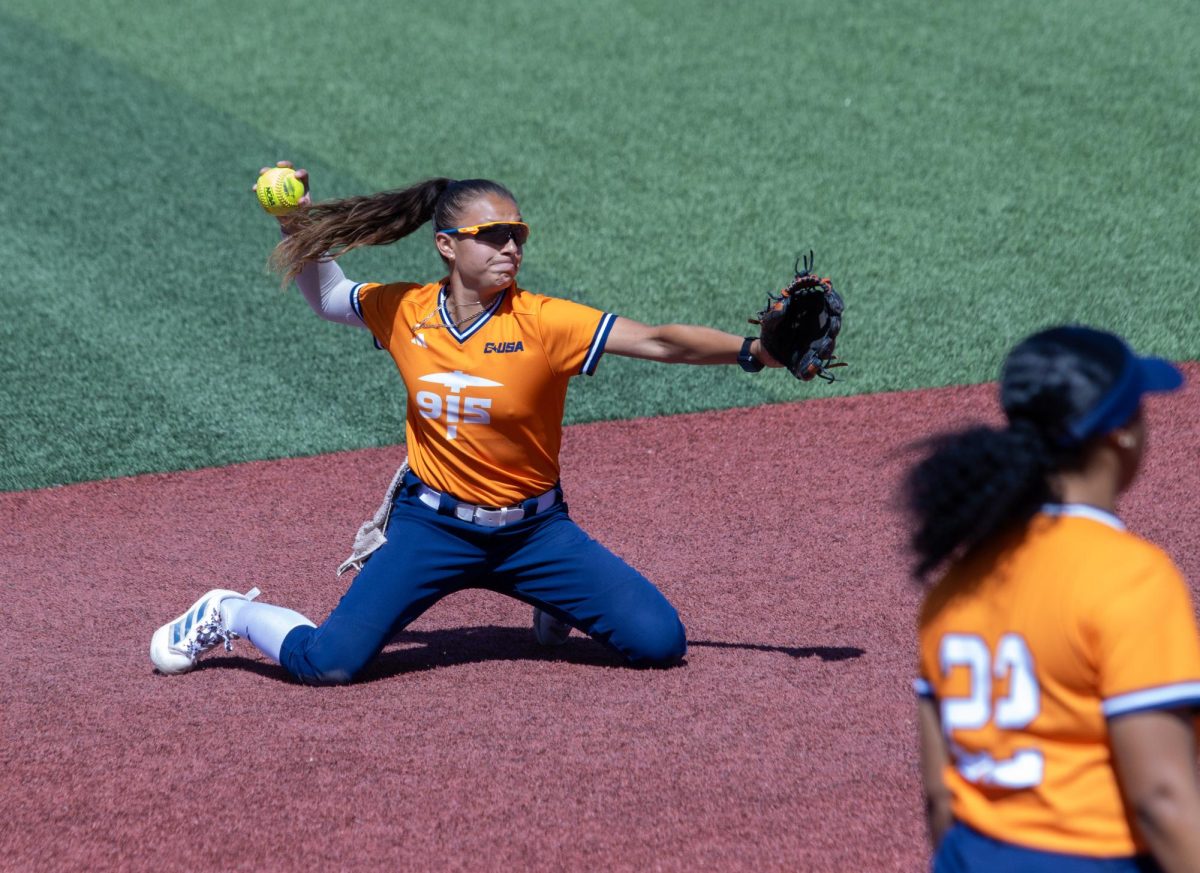Title IX was federally amended August 14 with changes to how cases are officially handled, which makes it more like a regular court hearing.
Title IX is a federal law implemented in 1972 with the goal of protecting people from sex-based discrimination and misconduct in education programs or activities that receive federal financial assistance, according to the U.S. Department of Education (DOE). These protections cover schools at all levels: primary, secondary and post-secondary. At UTEP, these protections apply to students, staff, faculty, and third parties within the university’s control, including visitors and applicants for admission or employment.
The recent changes to the longstanding federal law have sparked debate. Opponents feel that the changes harm survivors of sexual assault.
Antonia Taylor is an advocate for victim’s rights and graduate student at University of Texas at San Antonio. When asked about the effect the changes would have on students, she said, “I read about them; all those changes are going to stop students from reporting.”
One of the biggest concerns is the revised time period for the entire process from investigation to closure; determining whether the person is innocent or not and the consequences for their actions. Previously the timeline was 60 days to close cases, under new regulations, investigations can go on indefinitely.
Taylor graduated from UTEP in May and is still waiting for her case to be closed.
“Our case has taken over 200 days. I feel like these cases shouldn’t be drawn out for so many years especially since a lot of us are only in college for four to six years,” Taylor said. “I think ensuring students are supported throughout the process, making sure it’s not lasting years and making sure students feel protected [is important] because at the end of the day we should feel safe on campus.”
Opponents to the law are not only concerned about prolonged cases, but the effect on survivors. A prolonged process can retraumatize them or cause them to go through the emotions caused by the event again.
“The Department acknowledges that Title IX grievance processes are not criminal proceedings and thus constitutional protections available to criminal defendants do not apply in the educational context.” the DOE said in a statement.
The Sixth Amendment of the U.S. Constitution calls for the right to a speedy trial. For complex cases, extra time may be a helpful, but the extended process can weigh on the complainant’s health.
“We’re trying to get our education, also working and trying to heal from all this,” Taylor said. “Having to get emails from the school talking about it over and over; to keep hearing about it is very difficult to work through.”
UTEP handles this by placing a 150-day timeframe on the process.
“It is our goal to finish before that,” said Gabriel Ramirez, Title IX deputy coordinator at UTEP. “We don’t really want to meet that deadline. We want cases investigated and have them go through the hearing process required before that 150-business-day span.”
After hearing about the impending changes in July, Taylor started a petition urging UTEP to make a statement. UTEP didn’t release a statement until Nov. 24.
“The schools take plagiarism and all this other stuff so seriously, but when it comes to assault, it’s swept under the rug. I do think it’s an issue of it being so taboo and people not wanting to talk about it, but we should have trainings for students,” Taylor said.
Reporting sexual misconduct does not start the investigation process, but it allows victims to receive supportive measures provided by their university. Supportive measures offered at UTEP include UTEP Counseling and Psychological Services, UTEP Student Health and Wellness Center, UTEP Campus Advocacy, Resources and Education and UTEP Employee Assistance Program.
Support provided is on a case-by-case basis and completely led by the person receiving it.
Submitting a formal complaint starts a process called the “grievance process” which involves an investigation and live hearing. The live hearing is presented in front of a designated hearing officer.
From the investigation phase to court hearing, there is a distinct process. First, the victim, formally known as “the complainant,” submits a formal complaint. Next an investigation is started. The person accused, formally known as “the respondent” then receives a letter alerting them that there is an investigation to be conducted. Both the complainant and respondent are allowed an adviser throughout the process. The adviser can be anyone of their choosing and does not have to be a lawyer. If they do not have one, the university will provide one.
Part of the investigation process includes interviewing witnesses, which is done by Title IX investigators, releasing evidence to both parties involved and a final investigation report explaining what was found. Once both advisers have signed the investigation report, it is sent to a hearing officer to review. The officer conducts a live hearing. At the end of the process, the officer gives a statement. This statement is a summarization of the entire process and includes the results from the case.
From the 2019-2020 academic year, the total number of Title IX reports was 90, from January to Aug. 23, 2020. The number of confidential reports made by employees or offices was 40.
The total number of investigations conducted was five.
The number of cases resulting in disciplinary action for students was three and there was one case where there was no policy violation found.
Other changes to Title IX include a clearer definition of what constitutes sexual harassment. Previously, the DOE defined sexual harassment as unwelcome advances, requests for sexual favors, or other conduct of a sexual nature by anyone. Under this rule, the university was only required to get involved when sexual harassment became “sufficiently severe, persistent or pervasive” that it made a student unable to continue in their activities.
The new guidelines define sexual harassment as sexual assault, dating and domestic violence, and stalking. Sexual harassment no longer must prevent the student from continuing activities to be investigated. The new guidelines allow for all incidents to be investigated, at the will of the student.
Opponents to the bill feel that the definition is too narrow and are concerned that cases will go unreported.
“If an incident reported does not meet the definition of sexual harassment and a student wishes to file a formal complaint, we can still investigate that matter under another process that is not as strict as the Title IX grievance process. We have a broader sexual misconduct policy than (federal) regulations, for instance,” Ramirez said.
Another change is that sexual misconduct must occur within a university program or grounds to be investigated by Title IX. This includes sorority and fraternity houses but leaves out students who study abroad.
Federal Title IX laws are required to be followed by universities, but they do not have to serve as the entire policy. Universities can offer further protection for students. UTEP offers a separate process for how off-campus misconduct is handled.
“There’s a provision in the new regulations that if an incident occurs outside the United States that it does not fall under these new regulations,” Ramirez said. “The institution is free to do what they wish with that. With that in mind, say a sexual assault occurs on a study abroad trip between two students, even though under the new regulations it would not fall under Title IX. It will still be investigated under a formal process within our sexual misconduct policy. The institution has elected to review off-campus misconduct that affects a student’s education regardless of what’s required under Title IX.”
Within the investigation process, a new regulation states both parties receive equal access to evidence. Certain pieces of evidence like medical records are not accessible without the party’s consent.
The DOE “limits the exchange of evidence from an investigation only to evidence directly related to the allegations in the formal complaint.” For example, if a complainant received counseling prior to the investigation for something unrelated to the case, those records cannot be used in court against them.
There is a concern of revictimization that goes with evidence being exchanged.
“The changes were instated when we were going through, so all the evidence submitted from the other side we saw and vice versa,” Taylor said. “Having to see all the evidence, it’s all brought back to life. Seeing people’s comments, seeing group chat messages, it was a lot.”
The DOE instills survivor protections by training investigators and decision makers on “issues of relevance, including for a decision-maker training on when questions about a complainant’s prior sexual history are deemed ‘not relevant.’” Information about the complainant’s prior sexual history or sexual predisposition are considered irrelevant to the investigation.
This places additional responsibilities on the respondent’s adviser. The DOE states that “only relevant cross-examination questions must be answered, and the decision-maker must determine the relevance of a cross-examination question before the party of witness answers.”
This means that if the hearing officer finds a question not relevant to the case, the complainant does not have to answer.
When asked about why evidence is released to both sides, Ramirez explained, “I do know that one of the emphasis on the regulation is that there be appropriate due process put in place for all parties involved and it may be in relation to that.”
Part of due process is knowing the opposing evidence.
During the live hearing, everyone involved from complainants to respondents and witnesses will be cross-examined. For complainants, the DOE recognizes that the cross examination could cause revictimization. Rather than have the complainant answer questions from the respondent, the advisers are the only ones allowed to question.
Further support is offered for the complainant. Before the hearing happens, the DOE allows short-term postponement if a hearing date for complainants to receive medical treatment for anxiety or depression.
“We want to make sure they feel safe. We have a lot of partnerships and collaborations on and off campus to ensure that the resources that the student needs they are able to get them,” Arely Hernandez, director for UTEP Campus Advocacy, Resources and Education said. “Our mission is to ensure that we empower our students to make decisions that are in their best interest and assist in ensuring that they can continue in school.”
The DOE allows the complainant to decide whether participation in the grievance process is something they want to do. But this poses a problem for witnesses who don’t consent to cross-examination.
If a source does not consent to cross-examination, the officer does not have to factor in their statement when making their decision.
The DOE acknowledges concerns over case conclusions made exclusively one-sided statements. In response to this, those without solid statements, decisions will be made on the evidence and it is the respondent’s responsibility to prove their innocence.
Although Title IX has been amended on the federal level, the way things are handled within the university’s spectrum vary. Students should know the policies and what resources are available to them.
In addition to counseling provided by the universities, Taylor believes that students can overcome sexual assault with public support or with student trainings on the subject.
“It shouldn’t be taboo,” Taylor said. “There’s such a huge stigma surrounding sexual assault, so I think we need to change the way we approach this, change our language and how we talk to people as far as when they come out of all this stuff. It should be talked about because it’s fairly common and it shouldn’t be.”
Further information on UTEP’s Title IX resources can be found here. The sexual misconduct policy can be found here.













